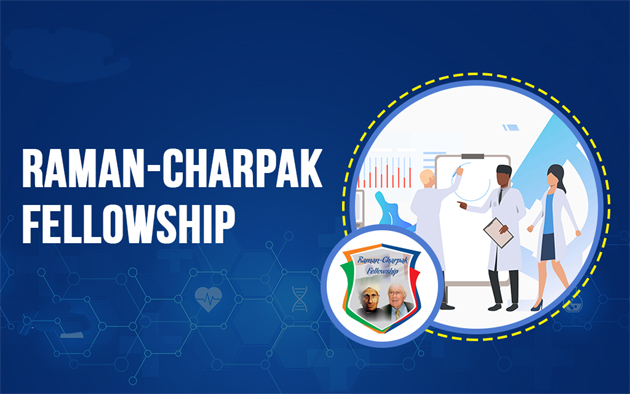Dr SS Verma
The Raman-Charpak Fellowship programme is in honour of two Nobel Laureates in Physics, Prof C.V. Raman, Indian Nobel Laureate (1930) on his great discovery of Raman Effect and Prof Georges Charpak (1 August 1924 – 29 September 2010), French Nobel Laureate (1992) for his invention and development of particle detectors, in particular the multiwire proportional chamber. The Fellowship was launched during the State visit of the President of France to India in February, 2013. The aim is to facilitate the exchange of doctoral students between the two countries, in order.
To broaden the scope and depth of future engagements in Science, Technology and Innovation. This programme implemented by the Indo French Centre for Promotion of Advanced Research (IFCPAR/ CEFIPRA) aims at improving the doctoral skills of Indian and French students by providing them an opportunity to carry out part of their research work in a University / Research & Development Institute based in France or India respectively. This programme is now also open to French Master Students (2016 onwards), who wish to spend some time in India in accordance to their curriculum. It aims at improving the Masters skills of French students by providing them an opportunity to carry out internship work in a University / Research Institute based in India. As per the information available on its web page: https://www.cefipra.org/mailer/Alumni%20newsletter-%20final.pdf, so far the number of Raman-Charpak fellowship alumni from India stands to be 1181 and from France the number is 924.
Target Group and duration: Indian & French PhD research scholars and Maters Students [only from France (included from year 2016)]. Research scholars during their Ph.D. and master students during their course can apply for the fellowship. The duration of fellowship varies from 2 to 6 months on the recommendations of host scientist/professor and as per decision of governing body for the fellowship. There is a wide range of areas of collaboration like: Atmospheric Sciences, Earth Sciences and Environmental Sciences, Materials Sciences, Physical Sciences, Chemical Sciences, Engineering Sciences, Biological Sciences, Life and Medical Sciences and Mathematical and Computational Sciences. Here, I am very happy to share that one of my Ph.D. students (Mr. Kailash) in his third year of research has been successful to get this prestigious fellowship for 2024 in the area of Physical Sciences. This year total 31 students (25 from India and 6 from France) have been selected for fellowship. Every year this is the almost number of fellowships given.
Eligibility criteria
* Applicants from India must be Indian citizens residing in India and have registered for a PhD in a recognized university or research institution in India
* Applicants from France must be residing in France and have registered for a PhD/ Master’s degree in a recognized university or research institution in France
* Maximum age 30 years as on 1st April of the call year
* Students once supported by CEFIPRA and students who have a permanent position in institutions/universities are not eligible
* Pre-authorization or prior consent from his/her Institute / University to apply for a foreign fellowship program
Fellowship support
For Indian Fellow: Fellowship Support of 1500 Euros per month for daily expenses, local travel, accommodation charges plus Social Security charges
For French Fellow: Fellowship support Rs. 40,000 per month for daily expenses, local travel etc. plus accommodation charges not exceeding Rs. 45,000 per month
* One return airfare ticket in economy class
* Insurance coverage (travel & health) wherever is required & Carte de Sejour (if any)
* Support for attending conference/ seminar / workshop during stay ( please see guidelines for details)
Application Procedure
Application is submitted at www.cefipra.org through an online submission system when there is a call for the same. First of all, the candidate has to contact a host scientist from France and write a research proposal under his (host scientist) guidance to be submitted and carried out during fellowship. Host scientist has to give his consent to host the candidate and also approve the research project proposal. Then all the forwarding of application formalities to be done at department and institute level of the candidate. Date of joining the fellowship is decided in consent with the host scientist. Matching of research interest and publications in reputed journals in two years by the candidate will matter a lot along with the strong recommendations from host scientists as well as Ph.D. supervisor.
Such fellowships give a nice opportunity to young researchers to explore their potential and progress in their research fields, thus, every research scholar during their Ph.D. should explore such opportunities.
Trending Now
E-Paper


